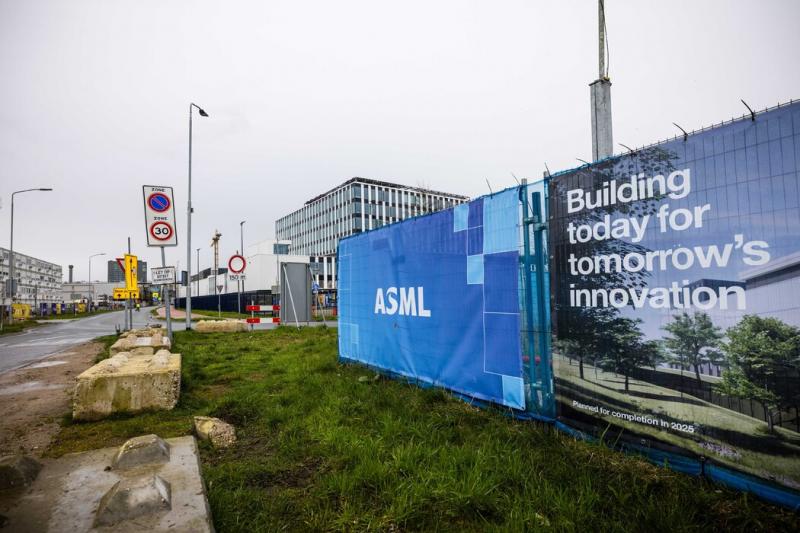
The Bayeng government is trying to overcome the opposition from the allies and the technology industry, and prepares to expand the restrictions to slow down the most advanced semiconductor capabilities in China.
The U.S. government has drafted new regulations. According to those who have seen or understood the draft draft, the new regulations will restrict those machines and software that can be used to manufacture and manufacture chips from some countries to China.This limit is also suitable for certain types of semiconductors.
These regulations are designed to block some new ways to block Chinese chip manufacturers regardless of international restrictions.
The United States has been promoting allies such as Japan and the Netherlands to strengthen restrictions on technological transportation in China, and this is the case during visiting these countries and the Japanese Prime Minister in April.These countries are where companies produce chip manufacturing equipment, such as Asmi and Tokyo Electronics Co., Ltd.However, the industry in the United States and other countries believes that these regulations may harm their interests, and it is still unclear whether the foreign governments will issue restrictions.
These people say that at the same time, some regulations on the implementation of the United States will have a major exception.The provisions for prohibiting the transportation equipment to some semiconductor factories in China will not be applicable to more than 30 allies, including the Netherlands, South Korea and Japan.
This has triggered the opposition from American companies. They believe that if the US government prevents their sales and does not prevent competitors from selling, the competitive environment will be more unfavorable to them.
U.S. officials said that the negotiations are still ongoing, and they still want to convince Japan and other countries to strengthen restrictions.But some analysts are skeptical of whether they can succeed.
The Senior Researcher of the New American Security Center Emily Kilkres said that although American allies are becoming more and more alert to Chinese threats, they are more willing to accept regulations that restrict the most advanced technology exports.
She said: "The wider the scope of control, the greater the business damage to their business."
Kilkres said that the United States restricts the business of its own companies, but does not restrict their competitors in the allies, which also makes American companies "unhappy."
Gregar Allen, an analyst at the Center for Strategy and International Research, said that under the urging of the United States, South Korea and other countries are updating its export control regulations.
"I think they have made great progress," he said."My question is always, is the speed of their progress sufficient to cope with China's countermeasures?"
A spokesman for the Ministry of Commerce said that the Ministry of Commerce is constantly updating export control measures to protect US national security and will continue to work closely with the allies.
A representative of the Ministry of Commerce in China said that the United States abuse export control measures and China hopes that other countries will resist the economic coercion of the United States.
Many of the content of this policy are unclear and may change.However, the fastest regulations that may be promulgated this month are obviously to strengthen the previous measures to limit China's development of the most advanced artificial intelligence chip capabilities.
Most advanced chips are used for consumer equipment, but some chips can also be used to develop weapons, implement network attacks and build monitoring systems.
The U.S. government has prevented the US export of technology in China, but a key part of the Biden government strategy is to allow other countries to pass similar regulations.If other countries do not do this, China can still get a lot of technologies from other places, and American companies will only lose sales opportunities.This may also encourage countries to stop using US components, so that they no longer have to comply with US regulations.
U.S. officials have been trying to allow Japan and the Netherlands to implement stricter restrictions on specific companies in China, and modify relevant laws to prohibit their citizens from repairing Chinese chip factories.
The efforts to prevent the chip technology from entering China began during the Trump administration. At that time, the Netherlands agreed to stop transporting the most advanced machine to China.
Two years ago, the United States banned advanced chips to China globally, and it was forbidden to export chip manufacturing machines from the United States to China from the United States.
Last year, the Netherlands and Japan agreed to release restrictions to prohibit some of the most advanced machines to China. The United States further tightened its own regulations, including stopping the export of Acemi and Tokyo Electronics to China.
Nevertheless, the Chinese chip industry continues to improve.
Last year, Huawei launched a mobile phone equipped with advanced chips, which was widely regarded as a challenge.
Since then, the Biden government has been formulating stricter regulations.
The new drafts include about 120 Chinese companies on the so -called physical list, asking other companies to obtain special licenses in order to transport products from the United States.The focus of this list is chip manufacturing companies, chip manufacturing machine companies, and companies that support related products and services.
Some Chinese chip factories will also be restricted by international restrictions, which will restrict the transportation of US parts or technology manufacturing from some countries.
The list of drafts includes several Chinese chip factories that are said to have cooperated with Huawei, including Shenzhen Shengwei Xu, Shenzhen Pengxinxu, Shenzhen Pengxinwei and Qingdao Xinen.Among them, it does not include the main chip manufacturer of China, which has become the goal before.
There are also some regulations for the transportation of memory chips, and memory chips are critical to train artificial intelligence models.The US government has considered reducing the limitation of artificial intelligence chips produced by Nvidia and other companies, but it is unclear whether these lower thresholds will be included.
Reuters and Bloomberg have previously reported these details.KLA and Application Materials Company refused to comment, while Panlin Group did not respond to the request of the comment.
The revised policy will make it more difficult for American companies to avoid restrictions from subsidiaries from Israel, Malaysia, and Singapore to China.However, some other countries will not be affected by the surge in China's shipments.
Asley said last month that China's sales accounted for nearly half of its income in the first quarter.Tokyo Electronics said that the impact of export control is "less than expected" because the company's less advanced equipment sales of China have increased.
Analysts said that the network of distributors and agents has sprung up like the rain, and the technology is transported to the restricted Chinese semiconductor factory.
American companies also suspect that foreign technicians are selling American machines that have been sold to Chinese factories before maintaining China.
People familiar with the matter said that foreign partners are skeptical of the US national security arguments and worry about China's retaliation and sales losses.
Japanese officials did not respond to the request of comment.The Dutch Ministry of Foreign Affairs stated that it has kept close contact with partners, and countries should evaluate export control by themselves.
Paul Teriolo, a partner of Olbwatt Shiqiao Group, said that this provision "try to avoid positive confrontation."
"No one wants to interfere with the allies," he said.However, the damage caused by export control to the American industry is "very serious", and he said.
"There are a lot of dissatisfaction, but the Biden government basically ignores it," he said.



